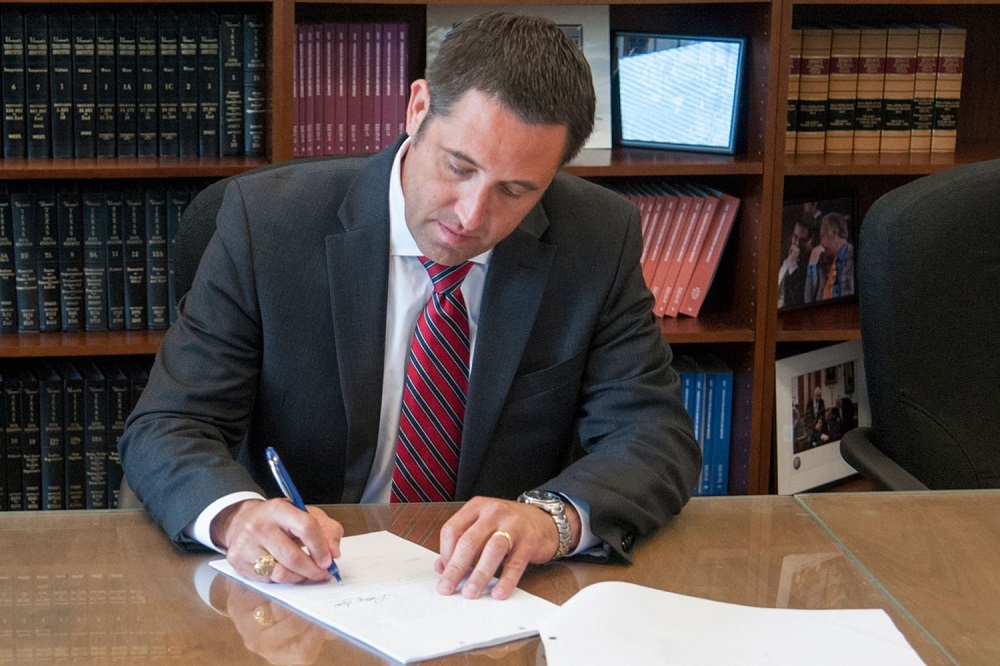Texas Comptroller Glenn Hegar is proposing a new way of handling how sales local tax is directed in an era where online sales make up a considerable amount of business for companies.
In a piece published in The Dallas Morning News, Hegar wrote about the complexities online retail creates when it comes to where sales taxes go. The city where sales tax is paid is not where it is collected and spent, he pointed out.
“Wherever you thought that money was going, I’ll bet you never imagined that your taxes were being shipped off to another community to fix their potholes, lower their property taxes or even provide a rebate of the local tax dollars you’ve paid back to a single business in a community far away,” he wrote. “But in some cases, that’s exactly what’s happening in Texas.”
Currently, the sales tax collected on goods and services purchased online goes to the city where the seller lives, and a loophole in Rule 3.334 makes it possible for some cities and businesses to makes deals with certain businesses to acquire the local sales tax on sales that business makes online.
“I don’t fault businesses for trying to boost their bottom line, and I don’t fault cities that enter into these economic development agreements, but my duty is ultimately to the taxpayers,” Hegar wrote. “Taxpayers do not pay local sales tax on internet purchases with the expectation that the revenue is then being distributed to businesses and cities nowhere near their communities.”
Hegar explained that a business could take advantage of the loophole by setting up a “facility” it claims will be used to process and ship orders. In other words, that facility will be viewed as the place of business. But in actuality, online orders may be processed and shipped from a location that is not even in Texas. With this structure, all the revenue from the local sales tax received from around the state will go to the community where the so-called facility is, not where the item is delivered to or picked up from.
Instead of sales taxes being collected where the seller is based, Hegar is proposing a new arrangement that will ensure local sales tax generated from online sales stays in the community where the buyer lives.
The change to the rule could mean a significant increase in revenue for local governments in Texas, Hegar said.
Last month, the state distributed $763.8 million in monthly sales tax revenue to local governments. Of that amount, $488.7 million went to more than 1,200 cities in Texas.
“This loophole doesn’t represent truth in taxation," he wrote. Instead, it’s the worst possible combination for taxpayers: You’re still paying the tax, but you’re getting no benefit. And your roads will still have potholes that need to be fixed.”

